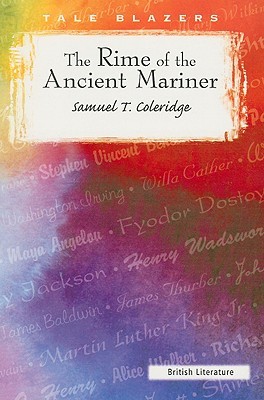
- We will send in 10–14 business days.
- Author: Samuel Taylor Coleridge
- Publisher: Perfection Learning
- ISBN-10: 0895986728
- ISBN-13: 9780895986726
- Format: 12.5 x 18.8 x 0.8 cm, softcover
- Language: English
- SAVE -10% with code: EXTRA
Reviews
Description
"Day after day, day after day,We stuck, nor breath nor motion;
As idle as a painted ship
Upon a painted ocean.
The Rime of the Ancient Mariner (originally "The Rime of the Ancyent Marinere") is the longest major poem by the English poet Samuel Taylor Coleridge, written circa 1797 and published in 1798 in the first edition of Lyrical Ballads. Modern editions use a later revised version printed in 1817 and featuring a gloss. Along with other poems in Lyrical Ballads, it was a signal shift to modern poetry and the beginning of British Romantic literature.
It relates the events experienced by a mariner who has returned from a long sea voyage. The Mariner stops a man on his way to a wedding ceremony and begins to narrate a story. The Wedding-Guest's reaction turns from bemusement to impatience, fear, and fascination as the Mariner's story progresses, as can be seen in the language style: for example, the use of narrative techniques such as personification and repetition to create a sense of danger, or the supernatural, or serenity, depending on the mood each different part of the poem.
Samuel Taylor Coleridge (1772–1834) was an English poet, critic and philosopher who was, along with his friend William Wordsworth, one of the founders of the Romantic Movement in England, and one of the Lake Poets. He is probably best known for his poems 'The Rime of the Ancient Mariner' (1792) and 'Kubla Khan' (1816), as well as his major prose work 'Biographia Literaria' (1817).
- Author: Samuel Taylor Coleridge
- Publisher: Perfection Learning
- ISBN-10: 0895986728
- ISBN-13: 9780895986726
- Format: 12.5 x 18.8 x 0.8 cm, softcover
- Language: English English
We stuck, nor breath nor motion;
As idle as a painted ship
Upon a painted ocean.
The Rime of the Ancient Mariner (originally "The Rime of the Ancyent Marinere") is the longest major poem by the English poet Samuel Taylor Coleridge, written circa 1797 and published in 1798 in the first edition of Lyrical Ballads. Modern editions use a later revised version printed in 1817 and featuring a gloss. Along with other poems in Lyrical Ballads, it was a signal shift to modern poetry and the beginning of British Romantic literature.
It relates the events experienced by a mariner who has returned from a long sea voyage. The Mariner stops a man on his way to a wedding ceremony and begins to narrate a story. The Wedding-Guest's reaction turns from bemusement to impatience, fear, and fascination as the Mariner's story progresses, as can be seen in the language style: for example, the use of narrative techniques such as personification and repetition to create a sense of danger, or the supernatural, or serenity, depending on the mood each different part of the poem.
Samuel Taylor Coleridge (1772–1834) was an English poet, critic and philosopher who was, along with his friend William Wordsworth, one of the founders of the Romantic Movement in England, and one of the Lake Poets. He is probably best known for his poems 'The Rime of the Ancient Mariner' (1792) and 'Kubla Khan' (1816), as well as his major prose work 'Biographia Literaria' (1817).


Reviews